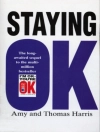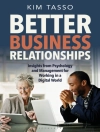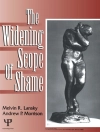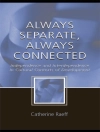We have a choice in how we look at the events that happen in our lives. We can choose to view the events in our life as a series of failure, employing blame and guilt. This is the Failure Road.
Or we can look at life as a journey of experiences, and no matter the outcome, there will always be a lesson to learn. And if we learn even one thing from the experience, we have succeeded! This is the Experience Road. It is a path that embraces success and optimism.
In The Two Roads of Life: Navigating Yourself and Family to Health and Contentment, Dr. Michael Simon draws upon his 43-year Experience Road journey as a clinical psychologist to help everyone from children to adults avoid taking the Failure Road by overcoming emotional and behavioral issues to reach their potentials and have happier lives on the Experience Road.
Dr. Simon uses a Teaching Model approach to treatment. His goal is to teach people how their minds and bodies work with an understanding that encourages and enables problem solving. His strategies are user friendly, specific, creative, and designed to be easily applied.
In the first part of this book, Dr. Simon focuses on childhood and family issues. His novel approach, ‘The Family as a Country, ‘ is a model that provides guidance and structure for developing a healthy and stable family. It examines the needs of both parents and children, while further assessing discipline, love, and attention. His methods are particularly well suited for families with special needs children.
The second part of the book focuses on the needs of adults, individually and as couples. Dr. Simon poses the question, ‘How Do You Make a Feeling?’ He teaches an understanding of how to take control over our exposed nerves and stay tuned into adult thinking, an Experience Road quality. He addresses anxiety, depression, trauma, Obsessive-Compulsive Disorder, Adult Attention Deficit Disorder, communication skills, and hoarding.
Following a long and successful career in suburban Long Island, New York, Dr. Simon and his wife have retired to urban life in Washington, D.C. As he embarks on new journeys, he wrote this book to share all the knowledge he has gained on his Experience Road. The material will be helpful for those seeking understanding and skills for managing emotional/behavioral needs. It will also prove helpful for clinicians in developing and organizing their own practices.
Mục lục
Foreword v Preface vii Introduction xi Volume One: Childhood Issues and Interventions The Family as a Country Model 19 Figure 1: Family as a Country The Government: Needs of the Parents 21 Figure 2: Parenting Tools The Citizens: Needs of the Children 26 Stage One: The Age of Discovery Child 26 Social Behavior of the Age of Discovery Child 30 Discipline with the Age of Discovery Child 31 The Power of Positive Reinforcement with the Age of Discovery Child 36 Restraint Techniques for Aggressive Behavior with the Age of Discovery Child 37 Stage Two: The Age of Opinion Child 41 The System of Law and Order: The ‘Choose to Earn Privileges’ Discipline Model 44 Figure 3: Choose to Earn 45 Active Listening and Problem Solving 49 Teaching Skills to Earn Privileges: Structure 51 Figure 4: Daily Checklist 52 Homework and Study 53 Figure 5: Backpack Checklist 54 Stage Three: Teenage Thinkers 55 The System of Love and Attention 58 Monitoring the Country (Family) 59 Childhood Therapeutic Interventions 60 The Experience Road vs. the Failure Road 61 Cognitive Training 62 Figure 6: Monster Thoughts; Better Thoughts 64 Anger and Frustration Control: A Four-Step Program 65 Figure 7: Anger Frustration Control 66 How to Manage Teasing 67 Assertion and Positive Training 70 Treating Anxiety: Phobias and OCD 74 Toileting Issues 80 Sleep Problems 81 Social-skills Group Therapy for Children 84 Issues of Loss: Divorce and Death 88 Perspectives on ADHD 90 Volume Two: Adults Introduction 93 How Do You Make a Feeling? 94 The Thinking Brain 96 How Does the Brain Work? 97 Computers and the Brain 99 Demanding, Catastrophizing, and Blaming (DCB) 103 CPA: Child, Parent, and Adult 104 The Attack of the Killer ANTS 107 Finding Your WOW and the Meaning of Life 109 White Blood Cells vs. Viruses 111 Forgiveness 113 Couple Therapy: Marital and Partner Relationships 117 Skills-based Model of Couple Therapy 119 Additional Issues in Couple Therapy 124 Anxiety and Depression 126 Panic Attacks 127 Obsessive-compulsive Disorder (OCD) 130 Hoarding 132 Social Anxiety 134 PTSD: Post-traumatic Stress Disorder 137 Adult ADHD and Uncluttering Your Home and Workplace 140 Summary 143 Appendix Family as a Country – Case Study: Chris 145 Street Games 148 Figure 8: Make the Best of It 156 Figure 9: It’s not HAT, it’s FAD 157 Figure 10: Do You Suffer from HAT? 158 Figure 11: Stay Calm and Think on Your Feet 159 Figure 12: Three Steps for Confronting Anxiety, Frustration, Anger, and Stressful Situations 160 Skill Drill 1: Handling Teasing 160 Skill Drill 2: Being Positive 162 Figure 13: Positive Self-Thoughts 164 Figure 14: Be a Positive Person 165 Figure 15: Look for the Good 166 Figure 16: If You Had Fun, You Won 167 Figure 17: There are No Failures 168 Skill Drill 3: Why Did You Do That? 169 Figure 18: Don’t Worry 171 Figure 19: Worrying Does Not Take Away Tomorrow’s Troubles 172 Figure 20: To Overcome Your Fears 173 Social Skills Groups 174 Figure 21: Planning a Social Event 175 Figure 22: Socialized Child 176 Managing Children with ADHD 178 The Management of Adult Attention-deficit/Hyperactivity Disorder: Uncluttering Your Home and Workplace 186 Figure 23: Uncluttering Room 190 Figure 24: How is Your Business? 194 References 195 About the Author 196
Giới thiệu về tác giả
Born to Holocaust survivors in Cincinnati, Ohio, and raised in New York City, Dr. Michael Simon’s childhood was greatly affected by the pain and suffering his parents had encountered. When he was 13, his father died unexpectedly, hurtling him into a whirlwind of anger and depression. He barely made it into college. But in his second year at C.W. Post College, he discovered psychology and began to understand his emotions, how they were shaped, and how to manage them.
Overcoming those early setbacks, he graduated with high honors and went directly into his clinical psychology doctoral studies.
He received his doctorate in School, Community, Clinical Psychology from Hofstra University, where he specialized in Cognitive Behavioral Approaches to Treatment. He also holds certificates from the Institute of Rational Psychotherapy and from the Milton Errikson Institute. In addition, he is recognized as a Qualified Psychologist from the Association of State and Provisional Psychology Boards.
Dr. Simon is a member of both the American and Washington, D.C., Psychological Associations and is proud to have served a term as president of the Nassau County Psychological Association. He worked for New York State’s office of Mental Retardation and Developmental Disabilities, is a former member of the New York Psychological Association, and was also employed by the Salvation Army within its programs for juvenile delinquency. His private practice began in 1976.
Along the way, he learned to accept that each of us is a work in progress, from our first day until our last, and this understanding has become a fundamental part of his teaching approach to psychotherapy. Dr. Simon believes that each of us needs to do our emotional work each and every day, continuing to learn from our experiences to stay focused on being an adult.
During his 43-year career as a clinical psychologist, Dr. Simon tried to employ those fundamental ideals in his activities outside of his practice, and continues to do so now as he keeps moving forward along the Experience Road to Life. He enjoys hiking and serves as a hike leader with numerous hiking clubs. He also enjoys photography, sports, and science fiction. Having recently relocated to the Washington, D.C., area, with his wife, Maria, he is excited to further explore the region’s stunning natural areas and endless museums. He also has two sons and two grandsons.
He invites you to learn more about him, his work, and his adventures at his website, Dr Michael JSimon Psychologist.com, and his blog, Drmjsimon51.medium.com.












